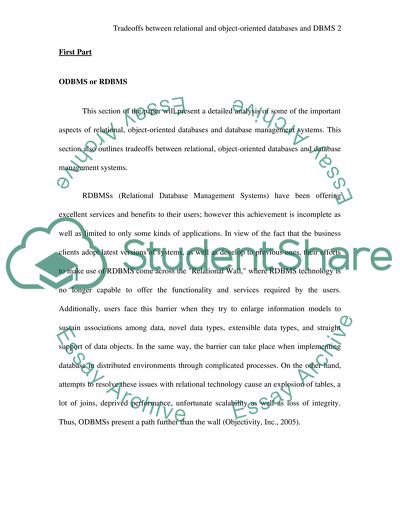Cite this document
(“What are the tradeoffs between relational and object-oriented Essay”, n.d.)
Retrieved from https://studentshare.org/information-technology/1427775-what-are-the-tradeoffs-between-relational-and
Retrieved from https://studentshare.org/information-technology/1427775-what-are-the-tradeoffs-between-relational-and
(What Are the Tradeoffs Between Relational and Object-Oriented Essay)
https://studentshare.org/information-technology/1427775-what-are-the-tradeoffs-between-relational-and.
https://studentshare.org/information-technology/1427775-what-are-the-tradeoffs-between-relational-and.
“What Are the Tradeoffs Between Relational and Object-Oriented Essay”, n.d. https://studentshare.org/information-technology/1427775-what-are-the-tradeoffs-between-relational-and.


